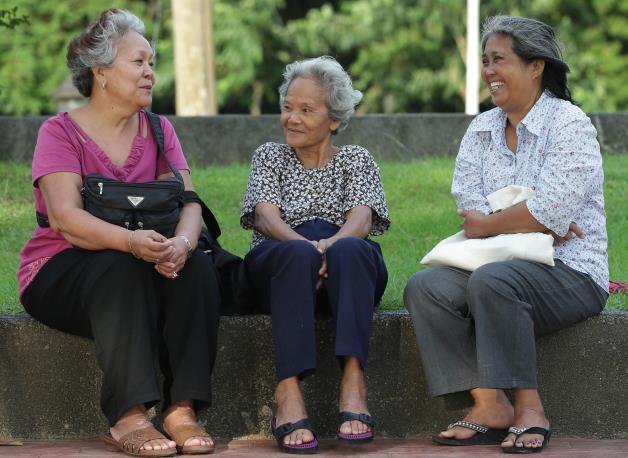MANILA,
Philippines - The Philippines ranked 44th out of 96 countries for the level of
well-being for older people, according to a global index released on Tuesday.
The Global Age Watch report showed there were 6.6
million people over 60 years old in the Philippines as of 2014 – a number
estimated to grow to 9.6 million by 2030 and 13.7 million by 2050.
The Philippines ranked highest in the enabling
environment domain (15th) and in the capability domain (18th) with above
average values in the employment (66 percent) and educational attainment (49.5
percent) indicators.
In terms of the security domain, the Philippines
ranked low (73 percent), with low pension income coverage (28.3 percent) and
higher than average old age poverty (13.7 percent). It also placed low in the
health domain at the 76th spot with a below average value of life expectancy
indicators and above average value for the psychological well-being indicator.
The report said older activists were calling for
better implementation of the Expanded Senior Citizens Act of 2010 and better
provision of social pensions as part of the Age Demands Action campaign in the
Philippines.
Norway and Sweden topped the ranking with the
highest level of well-being for older people while Afghanistan ranked last.
The
13 indicators measured by the index included life expectancy, coverage by
pension plans, access to public transit, and the poverty rate for people over
60. Scores of countries were not ranked due to lack of data for some of the
criteria, but HelpAge said the countries included in the index are home to
about 90 percent of the world’s 60-plus population.
Switzerland, Canada and Germany joined Norway and
Sweden in the top five. The United States was eighth, Japan ninth, China 48th,
Russia 65th and India 69th.
The bottom 10 were: Iraq, Zambia, Uganda, Jordan,
Pakistan, Tanzania, Malawi, West Bank and Gaza, Mozambique and Afghanistan.
The Global Age Watch Index was compiled by HelpAge
International, a London-based nonprofit with affiliates in 65 countries. Its
mission is to help older people challenge discrimination, overcome poverty and
lead secure, active lives.
Many elderly can’t retire
Most elderly people in the Philippines can’t retire
from work even if they want to, due to lack of pension.
The International Labor Organization (ILO)
yesterday reported that only around 30 percent of elderly people in the
Philippines have pensions.
This means at least 70 percent of senior citizens
must continue working despite their old age, or risk falling into poverty.
Elderly people in the Philippines are doing worse
than the global trend, with nearly half of elderly people worldwide without
pensions.
Of the 52 percent who do, the ILO reported that
many were still not receiving an adequate income.
“The majority of the world’s older women and men
have no income security, have no right to retire and must keep working as long
as they can – often in poorly paid, precarious conditions,” ILO’s Social
Protection Department director Isabel Ortiz said.
Source:
www.philstar.com

No comments:
Post a Comment